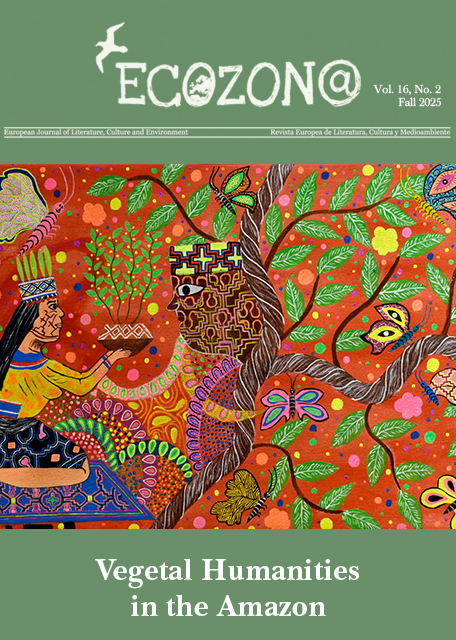Scaling High Places. Mountaineering Narratives as Climatological Tales
DOI:
https://doi.org/10.37536/ECOZONA.2020.11.1.3192Parole chiave:
climate, mountaineering, high-altitude climbing, Everest, scaling, modern myth, Christoph Ransmayr, Jon Krakauer, Thomas Glavinic, Robert MacFarlane, environmental humanitiesAbstract
Christoph Ransmayr’s 2006 novel Der fliegende Berg and Thomas Glavinic’s Das größere Wunder (published in 2013) confront very different ideas of mountaineering. Glavinic’s protagonist Jonas joins a commercial expedition to summit the world’s highest mountain. These highly criticized commercial endeavors are the opposite of Ransmayr’s scenario in which two brothers, Patrick and Liam, embark on a journey to a mythical peak – the last Himalayan mountain no one has ever summited before. The commercial sporting extravaganza and the ultimate independent adventure represent two extremes of a practice aimed at producing intense physical encounters with nature. Both novels confront the possibility of such encounters with an account of the life of their protagonists within a thoroughly modern world. In aligning biography with the ascent of the respective peak, the narratives present themselves as mediations between personal and planetary scales. Climate, thus, is not only present as an obstacle to overcome, but as a narrative device negotiating increasingly precarious relationships between humans and nature. In comparison with non-fictional mountaineering accounts these narratives reveal an understanding of climate which is not exhausted in a “weather-biased understanding of the atmosphere” (Fleming/Jankovic 2). Instead they resurrect apparently discarded notions of climate as a local and bodily entity. Using Fleming/Jankovic’s concept of Klima – an understanding of climate which combines natural and cultural facts – this paper investigates the methodological and narrative aspects of scaling, acclimatization and high-altitude in order to unearth the myth underlying these climatological tales and their (possibly) productive and destructive effects on current discourses on human-nature-relationships in the Anthropocene.
Downloads
##submission.downloads##
Pubblicato
Fascicolo
Sezione
Licenza
Authors who publish with this journal agree to the following terms:
a) Authors retain copyright and grant the journal right of first publication with the work simultaneously licensed under a Creative Commons Attribution License that allows others to share the work with an acknowledgement of the work's authorship and initial publication in this journal (CC BY-NC for articles and CC BY-NC-ND for creative work, unless author requests otherwise.
b) Authors are able to enter into separate, additional contractual arrangements for the non-exclusive distribution of the journal's published version of the work (e.g., post it to an institutional repository or publish it in a book), with an acknowledgement of its initial publication in this journal.
c) Authors are permitted and encouraged to post their work online (e.g., in institutional repositories or on their website) prior to and during the submission process, as it can lead to productive exchanges, as well as earlier and greater citation of published work (See The Effect of Open Access).










